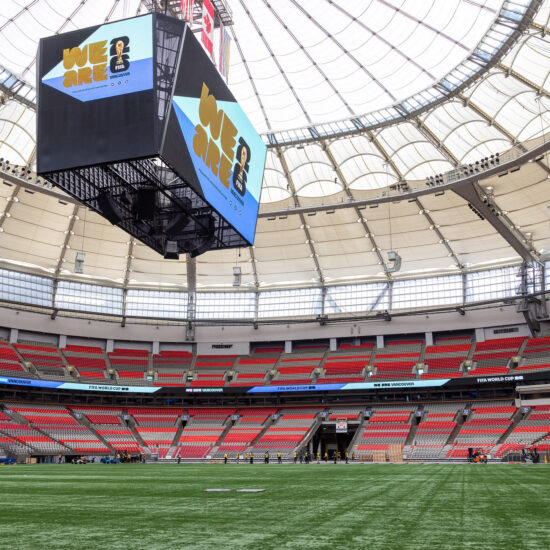
Bob Mackin
Training for municipal police officers in British Columbia is inadequate, according to a pair of reports obtained by theBreaker.news that were submitted to the provincial government.
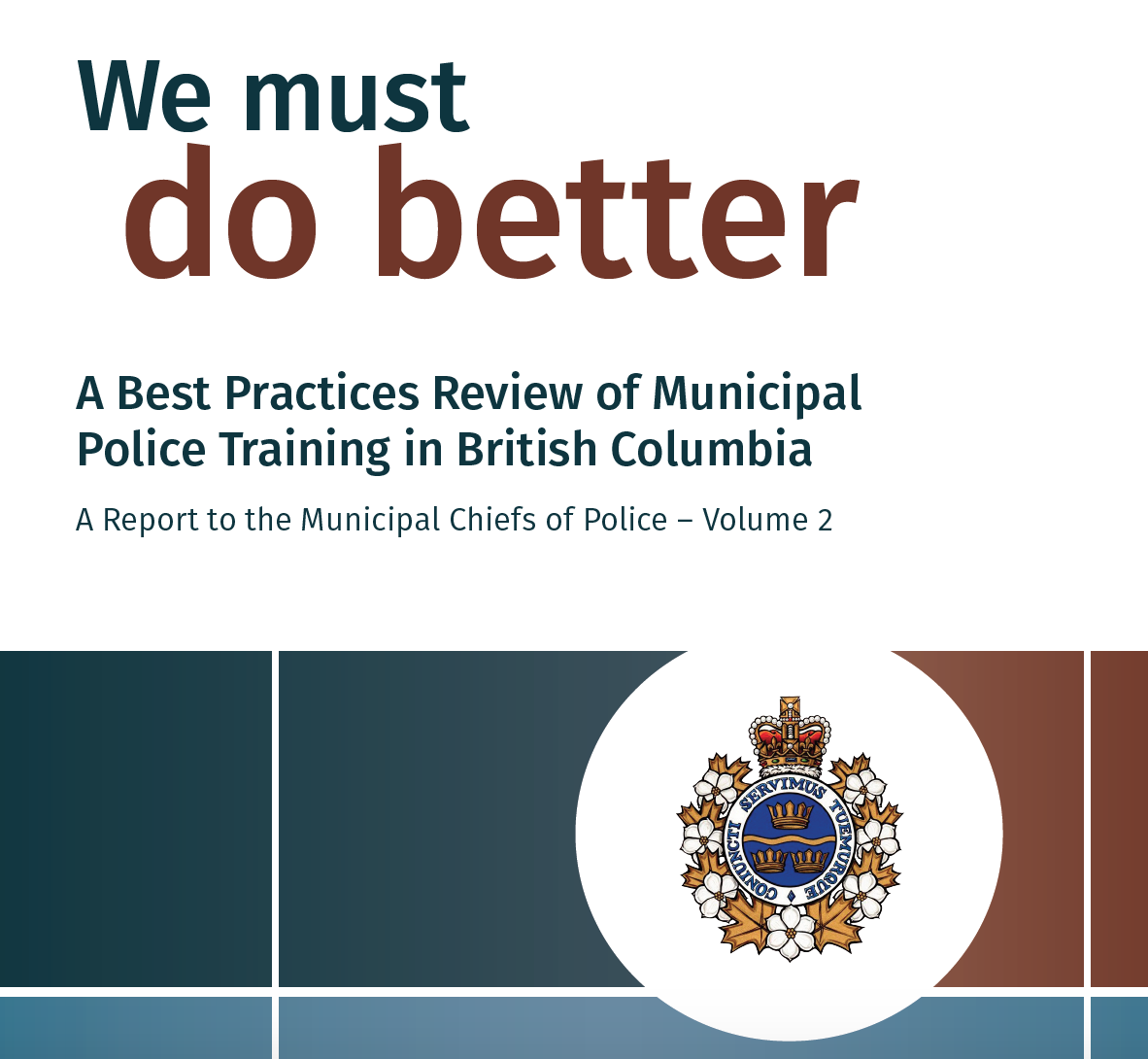
Cover of the 2018 German/Rolls report.
The Needs Assessment report to the Municipal Chiefs of Police Association (MCPA) in 2017 deemed the province’s police academy at the New Westminster-headquartered Justice Institute of B.C. “not adequately financed for today’s policing environment, considering the challenges of mental health, other social issues, and the current drug crisis.”
At the time, JIBC was chaired by a B.C. Lottery Corporation executive who was fired in 2019 after the NDP government green-lit the Cullen Commission into money laundering.
“In no way are we preparing our recruits adequately,” said the Needs Assessment report co-written by Peter German, the former head of the RCMP in Western Canada, and Bob Rolls, the former Vancouver Police deputy chief and founding member of the Surrey Police board.
The report recommended a followup to examine governance, funding and best practices. In 2018, Rolls and German co-wrote We Must Do Better after reviewing eight police academies including Washington State, Toronto and the RCMP Academy, Canada’s largest.
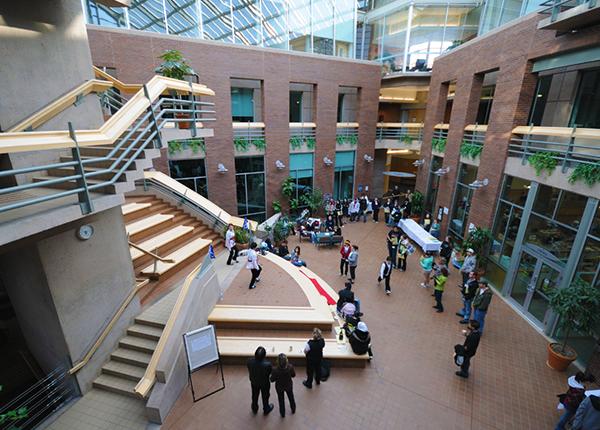
Justice Institute of B.C.’s New Westminster headquarters campus (JIBC)
They found “each of the academies visited is better able to provide the training required for police recruits than is currently available at the BCPA” and they found governance for municipal police training in B.C. to be “convoluted and ineffective.”
“Policing is an increasingly complex profession, with officers on the front line dealing with the current overdose epidemic, mental illness, homelessness and other difficult societal issues,” they wrote. “Police officers are expected to respond with sensitivity and restraint. There is an expectation that they will have the knowledge, skills and tools available to provide the very best possible outcome, while minimizing the risk to the public. There is no tolerance for excessive force.”
The report cited the 2014 shooting deaths of three RCMP officers in Moncton, N.B. and the finding that the RCMP violated the labour code for failing to adequately outfit and train officers.
“British Columbia must never allow its police or its citizens to be unsafe due to inadequate police training,” said the We Must Do Better report.
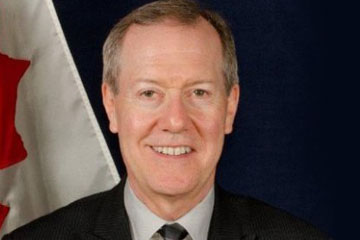
Anti-money laundering expert Peter German.
The reports did achieve some action, as the NDP government granted the police academy a one-time infusion of $500,000 from the Solicitor General’s ministry and $300,000 from the Ministry of Advanced Education for the 2019-2020 fiscal year. A working group was struck to explore a new long-term funding model.
The police academy is a core program at the JIBC, which ran a $52.68 million budget in 2018-2019, including $21.58 million from B.C. taxpayers and $13.85 million from tuition fees. The provincial government, municipalities and recruits contribute to training costs at the academy.
JIBC also took in $1.77 million in international tuition and contracts, such as the hosting of 280 students from nine People’s Republic of China police colleges over two terms at the Chilliwack campus.
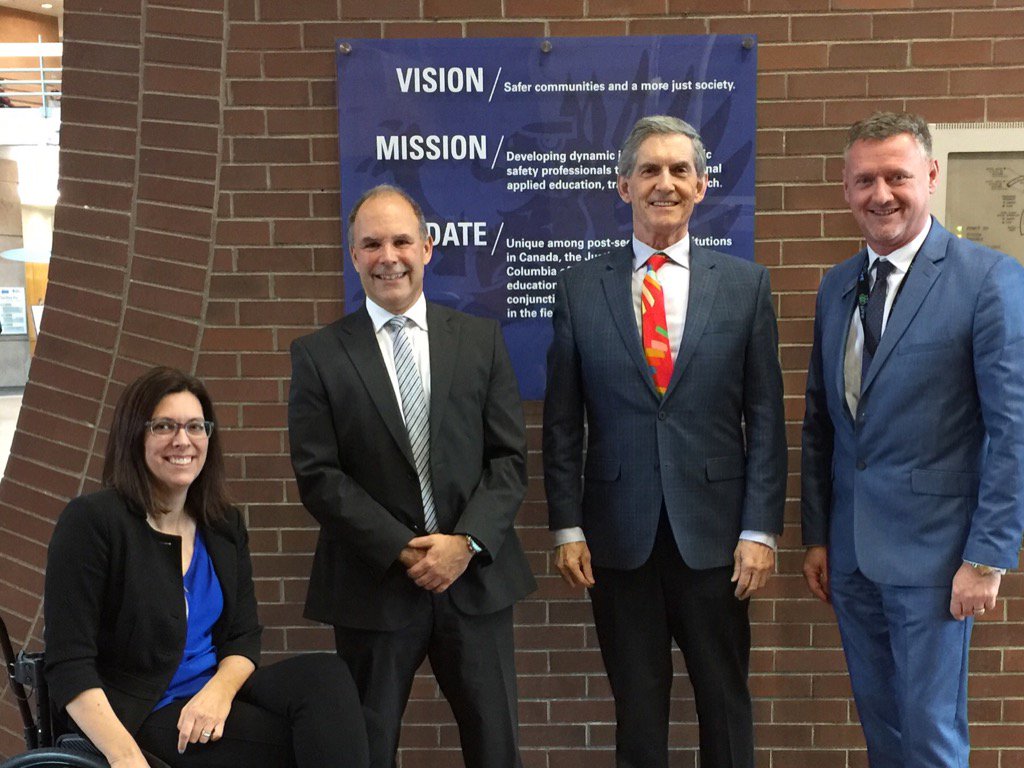
Ex-Justice Institute of B.C. chair Robert Kroeker, 2nd from left, flanked by BC Liberal MLAs. (JIBC)
The province’s contribution included $2.27 million from the police services budget.
There were 146 full time equivalent police academy students of the 3,507 enrolled during the year.
In October 2018, Kroeker resigned as chair. Kroeker was vice-president of security at B.C. Lottery Corporation after holding a similar position at River Rock Casino Resort in Richmond, the epicentre of the province’s money laundering scandal.
Langley lawyer Sukhminder Singh Virk took over as chair. Kroeker was fired by BCLC in July 2019 and was granted participant status in the Cullen Commission on money laundering to allow his lawyer to cross-examine witnesses.
Support theBreaker.news for as low as $2 a month on Patreon. Find out how. Click here.











